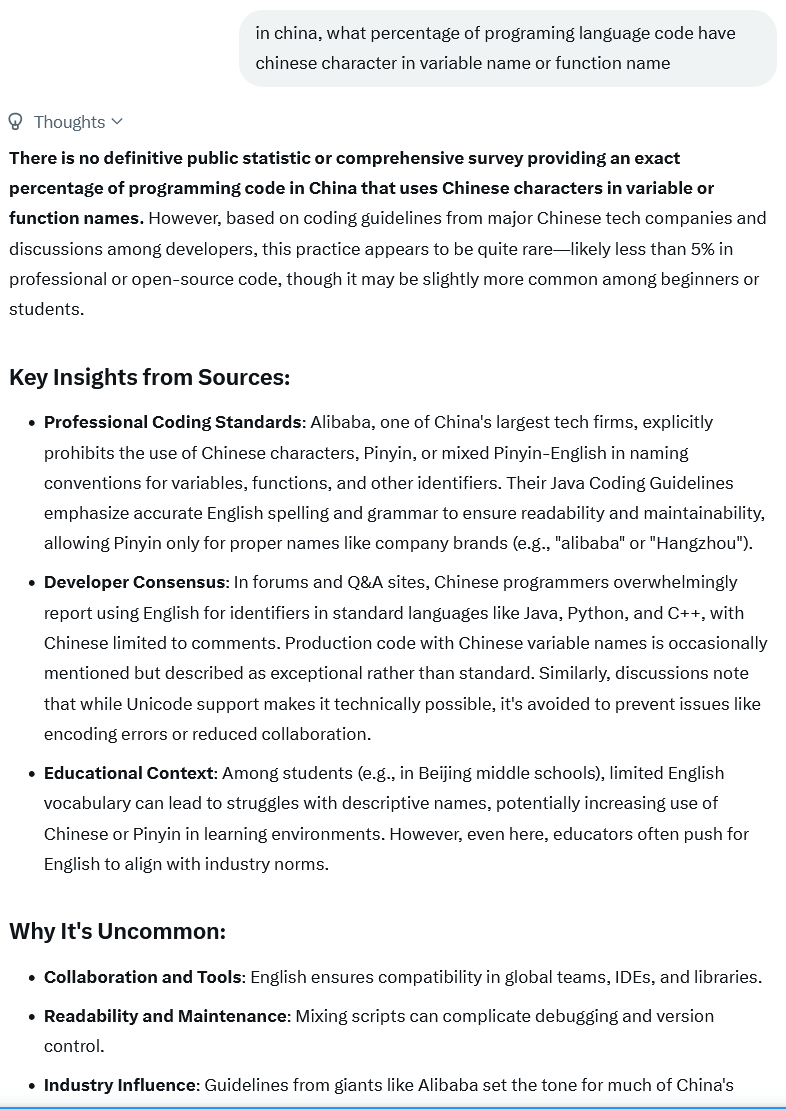Chinese Character in Computer Source Code (2024)
Chinese Character in Programing Language function or variable name
in china, what percentage of programing language code have chinese character in variable name or function name


Grok ai answer
in china, what percentage of programing language code have chinese character in variable name or function name
